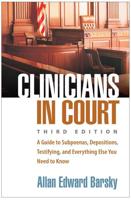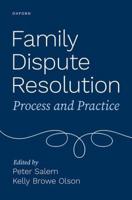Publisher's Synopsis
Textbook of Forensic Psychology is a comprehensive guide designed to provide an in-depth understanding of forensic psychology's role within the legal system. This textbook bridges the gap between psychological theories and legal practices, offering essential insights for students, professionals, and scholars in the fields of forensic medicine, law, and psychology.
The book is organized into several key sections, each focusing on critical areas of forensic psychology:
- Foundations of Forensic Psychology
- Introduces the principles, history, and scope of forensic psychology.
- Explores the intersection of psychology and the legal system, highlighting the role of forensic psychologists in criminal and civil contexts.
- Assessment and Evaluation in Forensic Psychology
- Discusses various psychological assessment tools used in forensic settings.
- Covers competency evaluations, risk assessments, and the detection of malingering.
- Classification of Sexual Offenses and Paraphilias
- Provides a detailed overview of sexual offenses, including non-contact, contact, exploitative, and statutory crimes.
- Examines paraphilic disorders, their classification, and forensic considerations.
- Ethical and Legal Considerations
- Addresses the ethical dilemmas faced by forensic psychologists, including confidentiality, dual relationships, and informed consent.
- Explores cultural sensitivities and legal obligations in forensic practice.
- Forensic Case Studies
- Presents real-world case studies to illustrate the application of forensic psychological principles.
- Includes diverse scenarios, from violent crimes to sexual offenses, highlighting forensic assessment techniques and legal outcomes.
- Advanced Topics in Forensic Psychology
- Explores specialized areas such as juvenile justice, criminal profiling, and the psychology of terrorism.
- Discusses contemporary issues like cybercrime and forensic neuropsychology.
- Forensic Considerations in Treatment and Rehabilitation
- Examines therapeutic interventions for offenders, including cognitive-behavioural therapy and pharmacological treatments.
- Focuses on rehabilitation strategies and risk management for recidivism prevention.
This book serves as both an academic resource and a practical guide for forensic psychologists, legal professionals, and students seeking to understand the complex dynamics of psychological assessment and legal processes.










